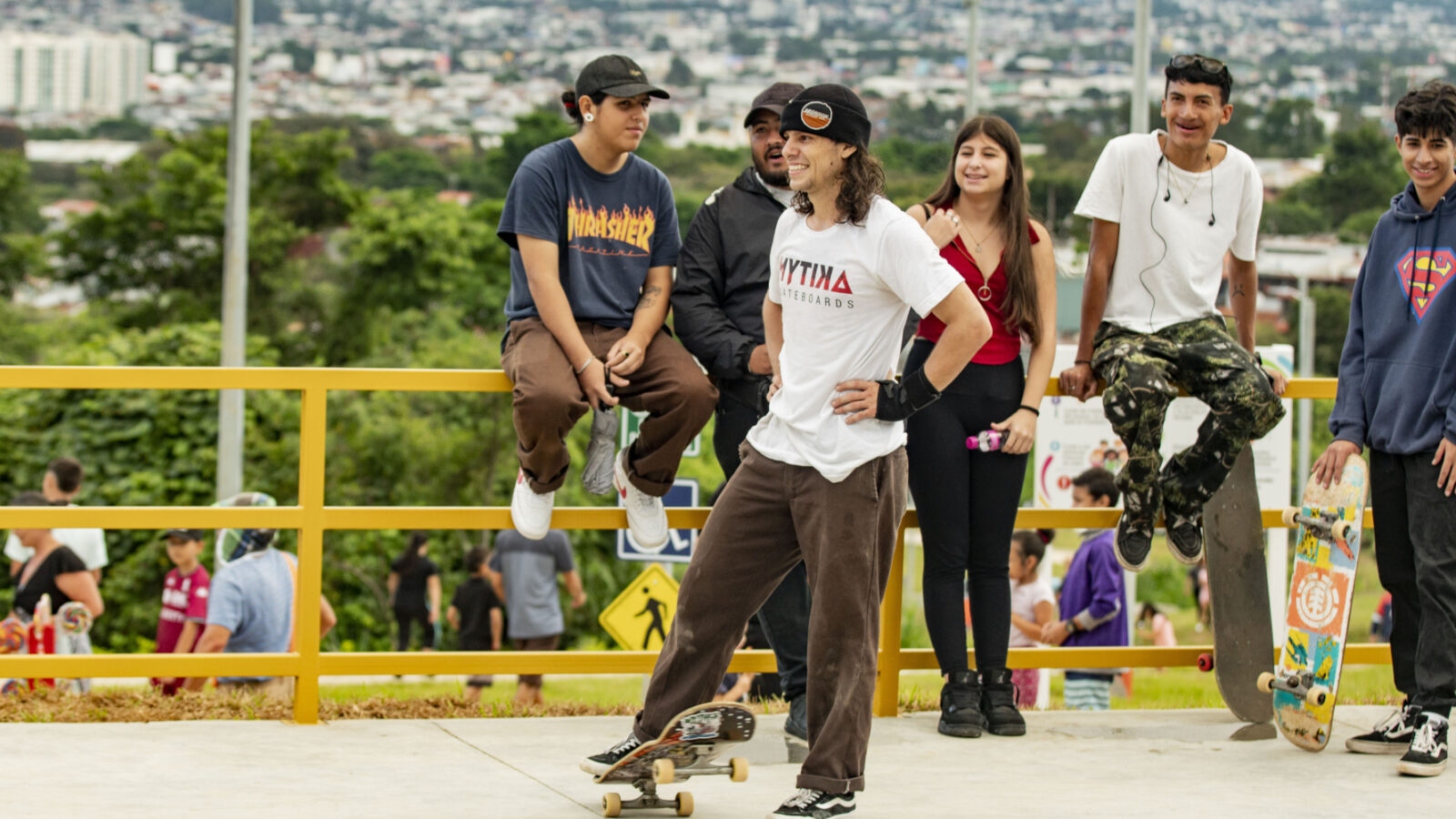
In Costa Rica, an inclusive urban infrastructure project is providing a lifeline for youth living in disadvantaged neighbourhoods.
In the southern neighbourhoods of Alajuelita – a municipality in the province of San José – residents struggle with high rates of violence and drug-related crime.
Limited access to education and a lack of opportunity increase inequalities and the risk of social exclusion and poverty. Among the residents, women and young people are particularly affected.
“The situation with drugs is terrible with the youth and because this is such a marginalized neighbourhood, the young people don’t have a place to go to relax, where they can play,” says Evelin Patricia Porra Suárez, resident of the El Jazmín neighbourhood.
Alajuelita's growing population highlights the need for better urban planning to ensure equitable access to green spaces and recreational areas for all residents. The lack of such spaces affects the communities’ health and well-being and diminishes quality of life. Addressing these challenges is essential for fostering social cohesion.
In response, UNOPS worked with the Ministry of Culture and Youth of Costa Rica on an inclusive and sustainable urban infrastructure project that is providing 8 hectares of recreational area and green space to nearly 90,000 residents, including around 13,400 young people.
“I take care of my park”
Young people are at the heart of the project.
The park has a strong focus on youth as the primary users of the space. Their perspectives, their needs and ambitions have helped define the park’s infrastructure and the recreational amenities.
UNOPS worked with the Costa Rican Skateboarding Federation on identifying design improvements for the skatepark while savings generated throughout the project were used to incorporate additional recreational elements for children – such as three playground areas.
Working with local associations, participatory workshops and community mobilization activities helped foster youth engagement – building a sense of community around the space and overcoming differences.
Local high school students were invited to visit the construction site, learn about the project and participate in the reforestation efforts while other young people from the neighbourhoods attended a graffiti workshop to create murals and help prevent vandalism in the park.
"This is our commitment to our children, youth and elderly, providing spaces for healthy recreation. That's why we call on the community to enjoy, but also take care of, this space, because we need it to be maintained over time", says Modesto Alpízar, the former Mayor of Alajuelita.
A park for everyone
The Human Development Park aims to leave no one behind.
The 1.9 km of trails meet universal accessibility criteria for people with disabilities. The paths are wheelchair-friendly and the tactile paving provides guidance for individuals with visual impairments throughout the entire route. Thoughtfully designed spaces ensure everyone feels welcome and safe.
Older adults can socialize and enjoy friendly competition at the games tables while children can play together, with a special swing designed to include those with disabilities. Public lighting ensures everyone can enjoy the park's recreational and sports areas around the clock, promoting safety and well-being for the entire community.
Today, the park has become a community gathering place, where youth and people from all walks of life come together to connect, play and relax. The new green space has helped break down barriers and build a more resilient and inclusive Alajuelita.
Learn more about this project here.
Source: UNOPS
 Welcome to the United Nations
Welcome to the United Nations